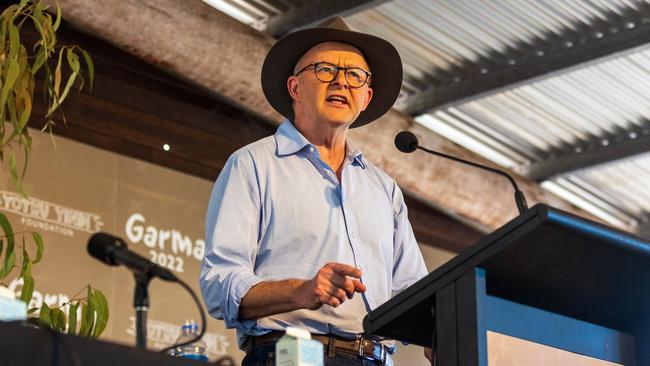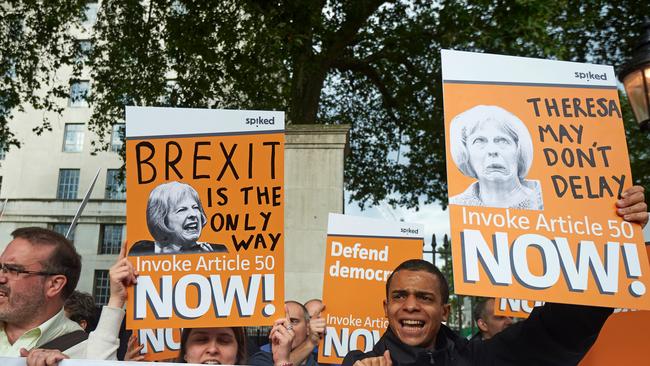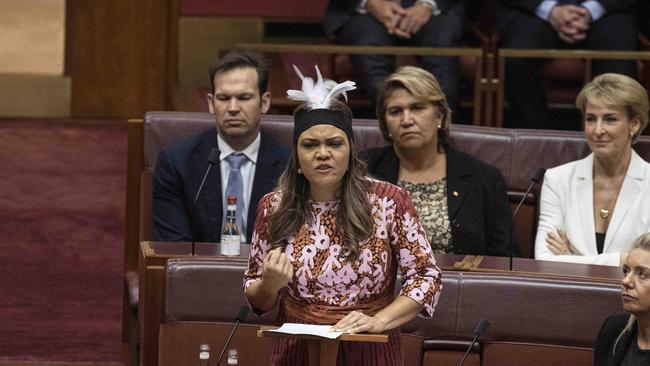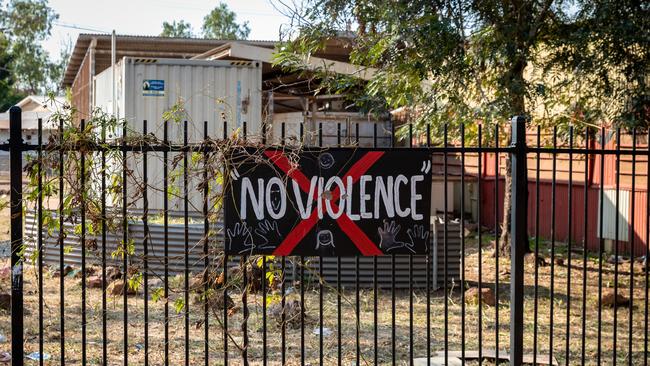James Morrow: Don’t worry, saying no to the ‘Voice’ does not make you a bad person
Labor is all set to run a culture war over Indigenous representation to parliament, but in the end the real beneficiaries will be an elite political class.
Opinion
Don't miss out on the headlines from Opinion. Followed categories will be added to My News.
The campaign to embed an Indigenous “Voice” into the Constitution is set to become Australia’s Brexit.
Far more than just a fight about policy, the Voice is already turning into a fight over class and culture, with the great and good all lined up on one side of the argument ready to shame those without the education or attitudes necessary to think the right things.
As with supporting Great Britain remaining in the EU, voting anything other than “yes” on permanently embedding an Indigenous “Voice” in the Australian Constitution is already being portrayed as something only the ignorant, the racist, and the bigoted would consider.
And as with Brexit, what is at stake is not so much easier travel to Europe or greater consultation with Indigenous Australians, but rather the transfer of ever more power away from the people to unelected groups and bodies.
If that sounds dramatic, consider that if a light-on-details proposal for the Voice gets up, with details to be worked out by the political class and Aboriginal activists, a republic vote would almost surely follow – again, with crucial details about what our constitutional arrangements look like to be determined by experts.

Ironically, a government that says it doesn’t do culture wars is trying to divide the nation into goodies and baddies and in the name of inclusion excluding anyone who has a different view.
For weeks now Prime Minister Anthony Albanese has sought to portray support for the Voice as a simple question of “good manners”.

To hear him tell it, it would be downright rude to ask whether parliament will have the power to dismantle the Voice once the “gap” is closed or if it winds up becoming another corrupt sinkhole for taxpayer funds like ATSIC.
And don’t expect to get a Christmas card this year if you wonder too loudly about whether in a nation of migrants, giving a shout-out to one race in the nation’s foundational document is really all that wise.
As Mr Albanese suggested at Garma, that sort of thinking should be dismissed as “misinformation”.
The prime minister, who told ALP colleagues the speech he gave at Garma would be as important as any he would give in his career, is clearly hoping that the Voice will be swept along on a tide of historical inevitability and as he put it “the goodwill of the Australian people”.

If the Coalition – more about which in a moment – can be twisted into knots over it in the process, all the better.
But while Australians may be kind and generous people who genuinely want to do something to help Indigenous Australians, particularly those living in struggling remote communities that may be impacted by alcohol use and other hardships, they are not mugs.
No wonder the PM has backed off a bit from his push for a blank cheque referendum and has now promised more detail of how any Voice to parliament might work, not too much but just enough to get it over the line.
He would want to, given that Indigenous leaders including new Senator Jacinta Price saying this will not be all it is cracked up to be, and that it will do nothing practical to solve real disadvantage on the ground.
As Warren Mundine wrote in these pages Tuesday, the Voice as proposed is about “Australia’s elites.”

“The Voice, like the representative bodies before it, is not built around Aboriginal cultures and how we look at ourselves,” he said.
A final report on a proposed design of a future Voice delivered to parliament last year by professors Marcia Langton and Tom Calma suggests that the most important stakeholders may be marginalised in this process.
The word “elders” shows up 19 times, while the phrase “traditional owners” appears just 38, often in concert with other groups such as “(those of) different genders, youth, (and) people with disability.”
For what it’s worth, “LGBTIQ+” receives 11 mentions.
In other words, it has all the hallmarks of a corporate diversity presentation.
And as it stands, the proposed Voice does nothing but create a parallel bureaucracy for activists (rather than elders) who will then have their positions amplified by the ABC and other sympathetic media outlets and politicians.
Of course, the one difference between Brexit and the Voice is unity.
While in Britain, Boris Johnson was able to get his party to swing around behind Brexit, here in Australia opposition leader Peter Dutton and his shadow Indigenous Affairs Minister say they are keeping an open mind about the Voice and that they would like to see more detail.
This would seem a recipe for disaster, with a Coalition not stating publicly what large numbers of Australians believe but feel they will be vilified for saying.
Namely that it’s great to do everything possible for Indigenous Australians but inserting race into the Constitution and creating a so far undefined advisory body to parliament that will possess a moral veto is a step too far.
Brexit won because people who were ignored by the elite found an outlet in the “Yes” campaign.
Today, millions of ordinary Australians will be looking to the Coalition to make the case for “No”.





